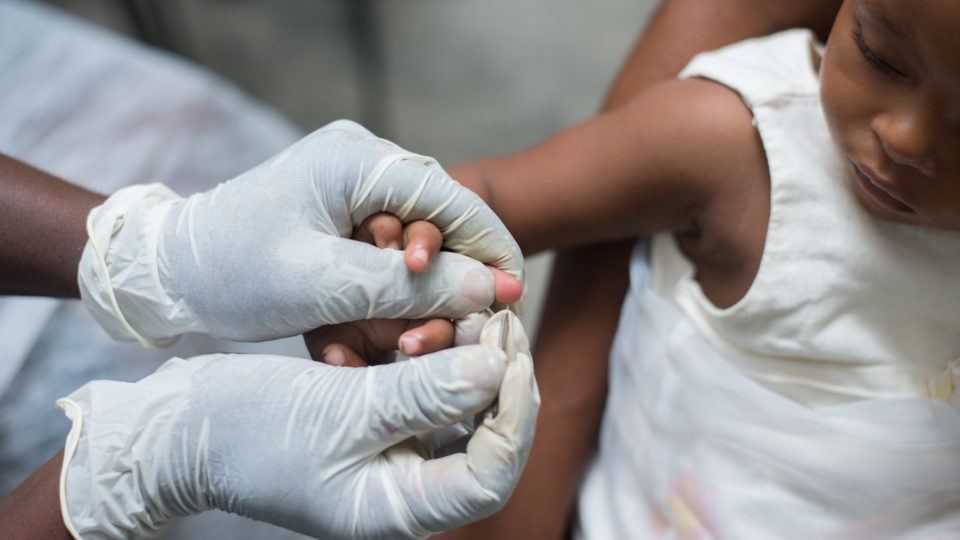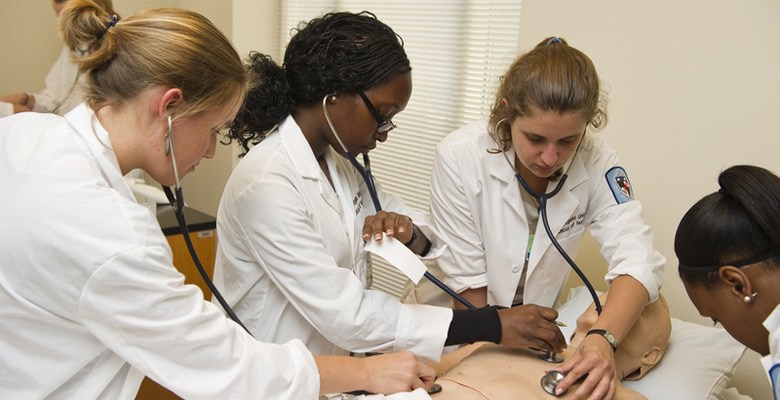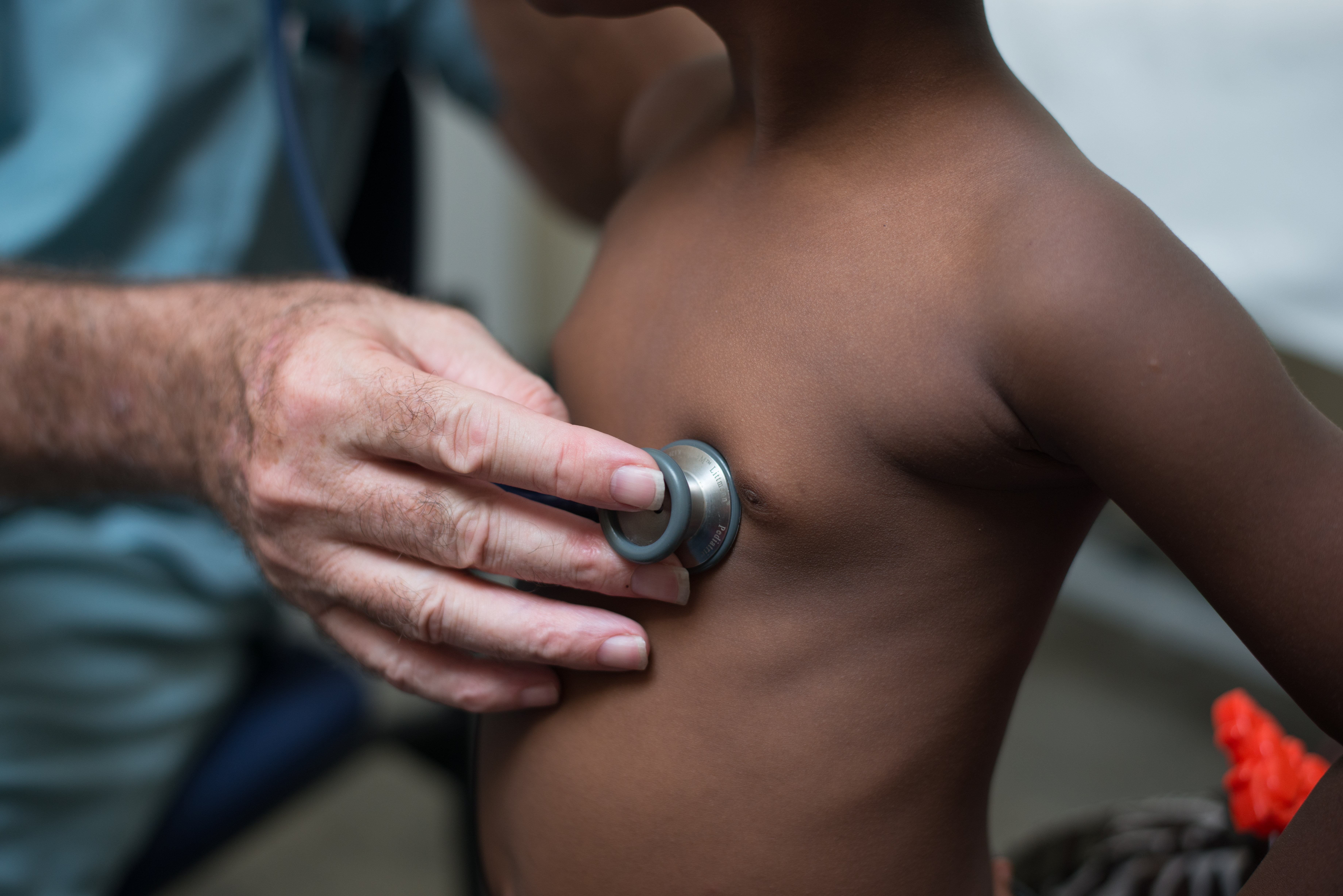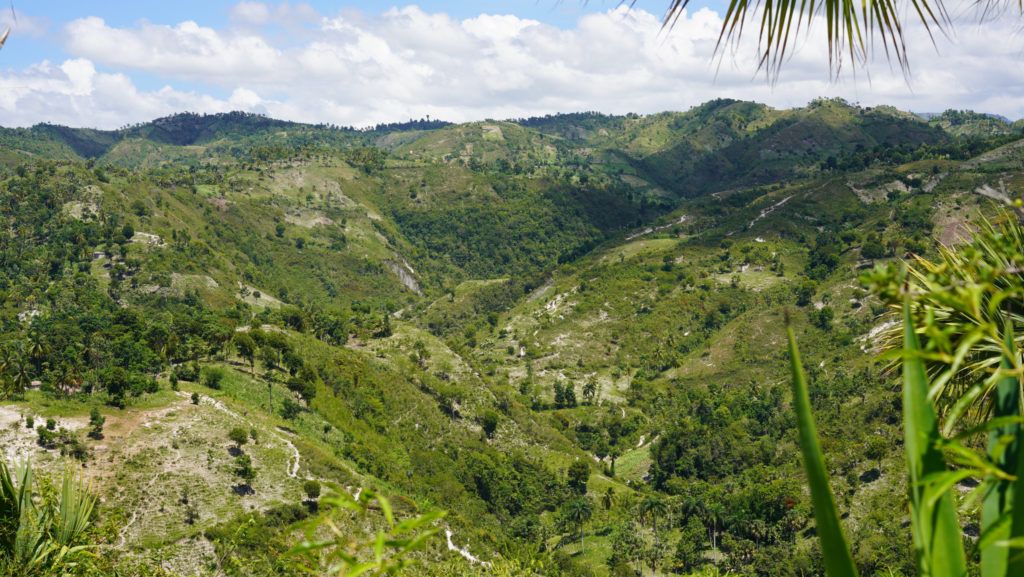How Access to Medicine Saves Lives

In 2018, CMMB sent $703 million worth of donated medicine and medical supplies to 35 countries. CMMB works with consignees (donation recipients) to help distribute these critically needed medications all over the world. Some of this medicine traveled to Leon, Haiti with a team of Nurse Practitioners and students from Johns Hopkins University. Read on to learn how service and medicine can (and does) save lives.
This past October, Deborah Busch, DNP, CRNP, who is a Pediatric Nurse Practitioner, returned to the small farming village of Leon, Haiti for the second time joined by her colleague Jennifer Trautman, PhD, CRNP, who is a Family Nurse Practitioner and four Nurse Practitioner students.
This little town, high in the mountains is over an hour drive from its nearest urban center, and much further by foot. The stunning views distract from the very limited access to healthcare this community experiences every day.
The Johns Hopkins University School of Nursing (JHUSON) has been sending healthcare providers, such as doctors, nursing professors, and students to this remote community for 18 years, endeavoring to bring healthcare to some of the most vulnerable people in the region. They work in coordination with the Health and Education for Haiti Foundation (HEH) who, along with St. Francis of Assisi Catholic Church in Maryland, who began the routine mission trips twenty years ago as a part of its twinning program with a local parish in Leon Haiti.

Source: Nursing Johns Hopkins
The only regular access the people of Leon have to healthcare is a health department clinic staffed by a nurse who administers vaccinations, manages TB, monitors pregnancy and newborn care, and performs consultations, all with very limited supplies and medications. Otherwise, it is only the combined efforts of JHUSON and HEH to send three mission trips per year that provide evaluations, referrals, and medicine to the village.
Beth Sloand, a nurse practitioner who has gone on the trip for years noted that some of the people in the town consider her as their primary care provider since she is the only one that they ever see.
Deborah Busch remembers a very stirring episode from their trip this past October. A family came into the clinic with three young sisters, all of whom had upper respiratory infections, which made them acutely ill and feverish. Deborah was able to assess, evaluate, identify that they needed antibiotic treatment, and provide Amoxicillin, which they received as an in-kind donation. The next day, their seven-year-old brother was brought in. He also had a significant upper respiratory infection, but his symptoms were more severe, and he appeared jaundiced. The severity of his condition led her to worry that he might have sickle cell anemia.
Upon being asked about this, the mother told Deborah that she herself has sickle cell anemia and feared her children might have it as well. None of the children had ever been tested for the disease. When children who have sickle cell anemia become ill with even the most ‘common’ illness, a Sickle Cell crisis can occur as well. These crises can cause severe exacerbation of symptoms, high fever, intense pain, and possible spleen complications. It is crucial to treat immediately, and Deborah suspected this young boy was possibly experiencing a crisis.

Along with the rapid prescription of Amoxicillin, she provided him with Tylenol for his pain and fever, referred him for immediate follow-up, and instructed the mother to return to the clinic so the staff could properly screen all the siblings for sickle cell. It is essential to identify those with sickle cell in order to begin daily prophylactic treatment to prevent crises.
Deborah stressed that this rapid response was only possible because of the availability of Amoxicillin, Tylenol, and other medications that were donated and provided for during the mission trip to the Leon Clinic. CMMB’s Medical Donations Program supports a large network of valuable partners like HEH and JHUSON, who ensure that even the most remote populations can have a healthy life.
